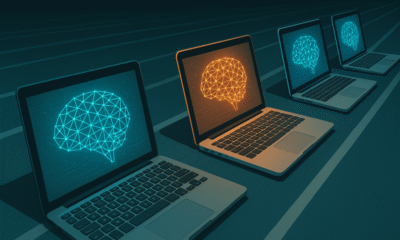Thought Leaders
3 Scenarios For How ChatGPT Will Change Investors’ Perspectives on Test Management Startups

The global AI market is slated to reach a valuation of $1.56 trillion by 2030, a compound annual growth rate of 38%. In the past few years, software as a service (SaaS) has seen the development of many tools and end-to-end services that help developers write and test code faster than ever before. Among these are popular solutions like GitHub and Microsoft’s Copilot tools.
However, it has become clear that GPT, part of OpenAI’s GPT-n series, is set to be the next big thing in this arena. This type of AI programming has been essential in shaping how the entire industry has evolved in recent years. Thanks to its ability to dramatically speed up development processes, AI technologies are more integrated into SaaS and DevOps than ever before.
Microsoft’s bet on ChatGPT is the most substantial so far. To date, the company has invested over $10 billion into OpenAI, allowing the company to use specially designed supercomputers to fuel further research and better run its AI models. Last year, OpenAI unveiled the image generator Dall-E 2, saying it hopes to market programs that fully mirror human capabilities and intelligence one day.
Not all investors are ready to back ChatGPT, despite its recent $20 billion valuation and projected $1 billion in revenues by 2024. This is often the case with any new technology because of the risk of it becoming an overhyped fad. Still, its possibilities are significant enough to quickly change investors’ feelings.
In the past, humanity thought that when technology conquered the world, machines would do the work and leave humans to do the creating. However, the reality is different. Here are three scenarios to demonstrate how ChatGPT can revolutionize the startup landscape and make investors take a second look.
1. Workforce reshuffling to focus on new skills
In time, ChatGPT will almost certainly be able to easily replace up to 50 junior developers. While this is not an immediate occurrence, investors always take the long view to make the best decisions. ChatGPT can write excellent code quickly, but it can’t make a feedback loop or perform certain types of troubleshooting well. This shift in capabilities means that the workforce will need fewer low-skill developers but more qualified, experienced personnel to validate, oversee and manage the technology.
There may even come a time when the AI evolves enough to write perfect code, which would again change the balance of the workforce toward operators who are well-versed in the algorithms.
2. Niche startups needed to streamline generative AI outputs
ChatGPT, Midjourney and other generative AI tools are trained on large amounts of data, but they all share the same problem: They do not know how to cluster and contextualize information. This will create a niche of generative AI startups dedicated to specific industries, opening up new avenues of investment for venture capital.
This adoption process has already begun for big names like Buzzfeed, Meta, Canva and Shopify, all of which are leveraging generative AI like ChatGPT to generate content and automate specific processes. Today, the technology is used for text, code, images and speech; in the future, it could be used to replace teachers in virtual classrooms or researchers in clinical trials.
From an investment standpoint, startups in this niche that can boost productivity or streamline the sorting and contextualizing of information will be in demand, once again altering the landscape for both the tech and VC spaces.
3. Quality and speed of startup formation altering development processes
Over the past century, creating startups centered around innovative technologies has been historically complicated and inextricably linked to science. This correlates to high initial costs and slow movement. However, new tools are available to reduce company formation costs, and new “low-code” solutions are available to speed up development processes, allowing a shift in focus from solutions-oriented to value-oriented. Solutions are easier than ever to create, so the focus is now on how startups can provide the most value for users.
For example, artificial intelligence is becoming increasingly capable of analyzing and accurately predicting coding errors. Previously, humans could write and debug code faster and more accurately than machines, so there was considerable skepticism about the future role of AI. Now, the GPT software proves that it’s capable of acting as a self-writing pen, demonstrating the development potential of the technology.
Here’s Why Investors Should Take a Closer Look at Generative AI in the Startup Landscape
VC firm Flint Capital notes that the integration of generative AI in the SaaS startup niche will markedly improve product-user interactions and potentially revolutionize the entire industry, paving the way for more intuitive and efficient experiences.
In turn, this is likely to cause a positive shift in sentiment for investors as long as it is accompanied by a tangible impact on a company’s bottom line through increased revenues and user acquisition.
Additionally, the reshuffling of the workforce means there will be considerable momentum toward creating brand-new niches and boosting existing ones, such as online education and global workforce platforms. Investors will be more likely to start looking for startup teams that demonstrate a mix of mid-level and senior developers.
Finally, we cannot yet say what the full impact of ChatGPT and related tech will be on the workforce or startup market. It will undoubtedly create new jobs that we do not yet have a framework for, but it will also likely augment existing jobs, as outlined in a recent economic study from The White House.












